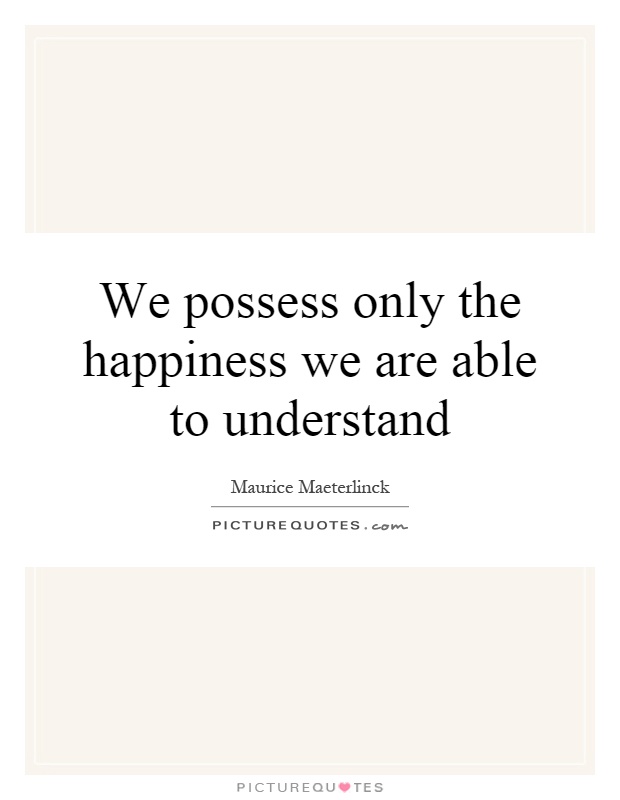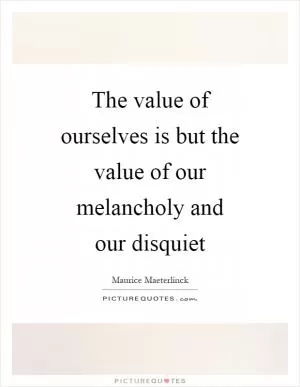We possess only the happiness we are able to understand

We possess only the happiness we are able to understand
Maurice Maeterlinck, a Belgian playwright and essayist, is known for his exploration of themes such as fate, the nature of existence, and the human experience. One of his most famous quotes is, “We possess only the happiness we are able to understand.” This statement encapsulates Maeterlinck’s belief that true happiness is not something that can be acquired externally, but rather something that must be cultivated from within.In the context of Maeterlinck’s work, this quote can be interpreted as a reflection of his philosophical views on the nature of happiness. Maeterlinck believed that true happiness is not dependent on external circumstances or material possessions, but rather on our ability to understand and appreciate the beauty and meaning of life. He believed that happiness is a state of mind that can only be achieved through introspection, self-awareness, and a deep understanding of oneself and the world around us.
Maeterlinck’s plays often explore themes of fate, destiny, and the interconnectedness of all living beings. In works such as “The Blue Bird” and “Pelléas and Mélisande,” he delves into the complexities of human relationships and the search for meaning and fulfillment in a seemingly indifferent universe. Through his characters’ struggles and triumphs, Maeterlinck invites his audience to reflect on the nature of happiness and the importance of finding contentment and joy in the present moment.
For Maeterlinck, true happiness is not a fleeting emotion or a temporary state of euphoria, but rather a deep and lasting sense of peace and fulfillment that comes from within. It is a state of being that is rooted in self-awareness, gratitude, and a profound appreciation for the beauty and mystery of life. By understanding and embracing the complexities of our own emotions and experiences, we can cultivate a sense of happiness that is authentic, meaningful, and enduring.












 Friendship Quotes
Friendship Quotes Love Quotes
Love Quotes Life Quotes
Life Quotes Funny Quotes
Funny Quotes Motivational Quotes
Motivational Quotes Inspirational Quotes
Inspirational Quotes